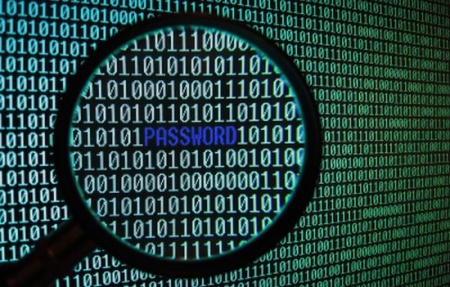Difference between revisions of "Ethics in Hacking"
(→Examples of Cyber Attacks) |
(→Examples of Cyber Attacks) |
||
| Line 17: | Line 17: | ||
===Examples of Cyber Attacks=== | ===Examples of Cyber Attacks=== | ||
Anonymous, a group of hackers against censorship of information, attacked Sony websites in response to persecution to fellow hackers who reverse engineered some of the Playstation 3 technology. Anonymous sent a warning to Sony declaring the attack because of the infringement of "free speech and Internet freedom"<ref>http://www.pcmag.com/article2/0,2817,2383018,00.asp</ref> | Anonymous, a group of hackers against censorship of information, attacked Sony websites in response to persecution to fellow hackers who reverse engineered some of the Playstation 3 technology. Anonymous sent a warning to Sony declaring the attack because of the infringement of "free speech and Internet freedom"<ref>http://www.pcmag.com/article2/0,2817,2383018,00.asp</ref> | ||
| − | Nissan | + | Nissan systems were attacked by unknown hackers seeking further access to Nissan networks. Username and passwords were stolen from their databases and left a cold trace for authorities to find them. <ref>bits.blogs.nytimes.com/2012/04/24/nissan-is-latest-company-to-get-hacked/</ref> |
==Information Hacks== | ==Information Hacks== | ||
Revision as of 02:35, 12 October 2012
The act of hacking covers many ethical grounds. From the ethics of warfare to the ethics of personal privacy, each accompied by the good and the evil sides to every argument. The word hacking, as of the late 20th and early 21st century, brings together notions of cyber criminal activity and mischievous internet activity. As a verb, the word in realm of technology refers to: a. Informal To alter (a computer program)[1] or b. To gain access to (a computer file or network) illegally or without authorization[2]
Contents
Hackers
"Yes, I am a criminal. My crime is that of curiosity" [3].. Written by someone called The Mentor, "The Hacker Manifesto" strikes against criminal accusations to hackers. By The Mentor's definition, a hacker is a curious person about information. But by the definition of the public media of the 90's, hackers are cyber criminals who steal information and cause public mischief[4][5][6]. According to the 1960's MIT's Tech Model Railroad Club, they're a bunch of pranksters who enjoy programming[7]. The linking details between them all are computers and the digital era.
Cyber Attacks
computers. services. websites. banks. Cyber attacks are conscience decisions to get unauthorized access to a computer system. Usually they are "cyberspace-based forms of strategic attack, designed to cause costly, crippling disruptions"[8]. The attacks are also done to steal information such as social security numbers, bank accounts, and private data.
Ethics of Cyber Attacks
The ethical grounds for a cyber attack should be based on warfare. The attacks are criminal by nature. Since computer information is not tangable like food, there isn't a necessity for such cyber crime. The role of war in the cyber attack can vary. There are war's on private information like wikileaks[9], warfare against countries known as cyber warfare [10], or even personal wars against large corporations like the attacks on Sony[11]. John Arquilla stated that "war and terror have grown more 'thinkable' and ethically acceptable due to the rise of disruptive, cyberspace-based means of attack"[12]. Cyber crime is a form of warfare and repeated exposure understandably makes physical warfare a more acceptable concept.
Examples of Cyber Attacks
Anonymous, a group of hackers against censorship of information, attacked Sony websites in response to persecution to fellow hackers who reverse engineered some of the Playstation 3 technology. Anonymous sent a warning to Sony declaring the attack because of the infringement of "free speech and Internet freedom"[13] Nissan systems were attacked by unknown hackers seeking further access to Nissan networks. Username and passwords were stolen from their databases and left a cold trace for authorities to find them. [14]
Information Hacks
Hacks for information seek to uncover the unknown. The subjects of such hacks range from celebrities to governments databases. Software was developed to conceal and protect data transmitted over the internet, such as private data encryption, due to such attacks. The driving concept of these hacks are privacy and what information should not be open to the general public.
Ethics of Information Hacks
The internet has given the computer age the ability to distribute information with ease. Facebook and twitter are venues for the general public to share information about themselves. There is information that users of such information distribution systems would like to keep a secret, for example personal details about their lives. The target of information hacks on people is information the subject of the attacks does not want the public to know. A common battle ground for information hacks is the target's cell phone where private messages, account details, emails, and images are often stored[15]. The privacy battles have been waged not only by the public but the government as well. Cases against privacy from the government are the rights of personal encryption data distribution (Bernstein v. US Department of Justice[16] and a probable cause needed to track people using cell phone data (USA v. Pen Register)[17].
Examples of Information Hacks
{Wikileaks, FBI hacks...}
References
- ↑ http://www.thefreedictionary.com/hacking
- ↑ http://www.thefreedictionary.com/hacking
- ↑ The Mentor. The Hacker Manifesto. http://www.mithral.com/~beberg/manifesto.html.
- ↑ http://www.nytimes.com/1992/04/19/us/a-nationwide-computer-fraud-ring-is-broken-up.html
- ↑ http://www.nytimes.com/1992/07/07/nyregion/2d-jail-term-looms-for-man-who-plundered-a-foundation.html
- ↑ http://www.nytimes.com/1990/01/24/us/from-hacker-to-symbol.html?pagewanted=all&src=pm
- ↑ Chapter 1 of Levy, Steven. Hackers. Sebastopol, Calif.: O'Reilly Media, 2010.
- ↑ John Arquilla textbook pg 134
- ↑ http://www.bbc.co.uk/news/world-us-canada-11858637
- ↑ http://www.zdnet.com/blog/security/richard-clarke-china-has-hacked-every-major-us-company/11125
- ↑ http://abcnews.go.com/blogs/technology/2011/10/sony-playstation-network-hacked-again-closes-93000-accounts/
- ↑ textbook pg 134
- ↑ http://www.pcmag.com/article2/0,2817,2383018,00.asp
- ↑ bits.blogs.nytimes.com/2012/04/24/nissan-is-latest-company-to-get-hacked/
- ↑ http://www.nytimes.com/2011/06/08/world/europe/08london.html
- ↑ John Sullins textbook pg123
- ↑ John Sullins textbook pg123

